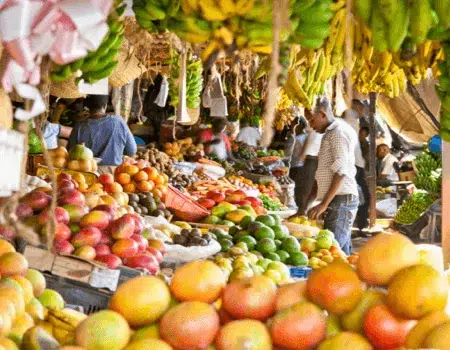Gaining access to finance in the food and agribusiness industries is a long-standing challenge throughout Africa, consistently holding back entrepreneurial momentum. SMEs are an essential health indicator of national economic development, but for the agri-food sectors, progress has been particularly slow.
Africa agriculture finance – the link to food security
not the case, as $90 billion worth of food and agricultural products are imported every year. Meanwhile, prior to the COVID-19 pandemic, about 70 million Africans were under-nourished.
Post COVID-19, that figure has escalated to 120 million falling into the undernourished category. 35 percent of agricultural products go to waste mainly because of the lack of storage facilities available.
For those who qualify for access to finance, high interest rates are often another obstacle to overcome.
Developing more de-risking instruments is vital to enable access, and technology can play a part. Smart technology now exists to generate stronger data capture around the land tenure system, which can be of great benefit, as many farmworkers do not have full and clear ownership of their land.
Without more progress in this area, a lack of consistently accurate farm operation records necessary to accessing finance will continue to hold back the sector continent-wide.
Urgency of policymaking around agriculture and finance
Agriculture is the mainstay of most economies in Africa, accounting for 37% of GDP, nearly 60% of export earnings, and over 76% of employment. It is the key to the future prosperity of the continent.
African governments recognise that GDP growth originating in agriculture is about four times more effective in reducing poverty than GDP growth in other sectors, but growth continues to fall short of potential, largely due to the financing gap with commercial banks.
Policy and regulation should continue to promote risk-sharing instruments to leverage commercial bank credit into agriculture to capitalise the sector.
The use of credit guarantees, interlocked markets for finance and warehouse receipts systems, and the implementation and enforcement of predictable private-sector-friendly laws and regulations are all parts of the jigsaw adding up to healthier outcomes.
African agribusiness experts
The lack of access to finance, compounded by high interest rates and the absence of clear land ownership, severely limits the potential of smallholder & SMEs in Africa, affecting the continent’s ability to achieve self-sufficiency and reduce food imports.
We believe that by investing in more modernised, industrialised, and technology-driven solutions, investors can build long-term environmental and economic resilience in Africa and reap the commercial benefits of increased productivity. We provide actionable advice on the most effective tools and strategies for African development, including green finance, clean energy, rural development, and regenerative agriculture.











